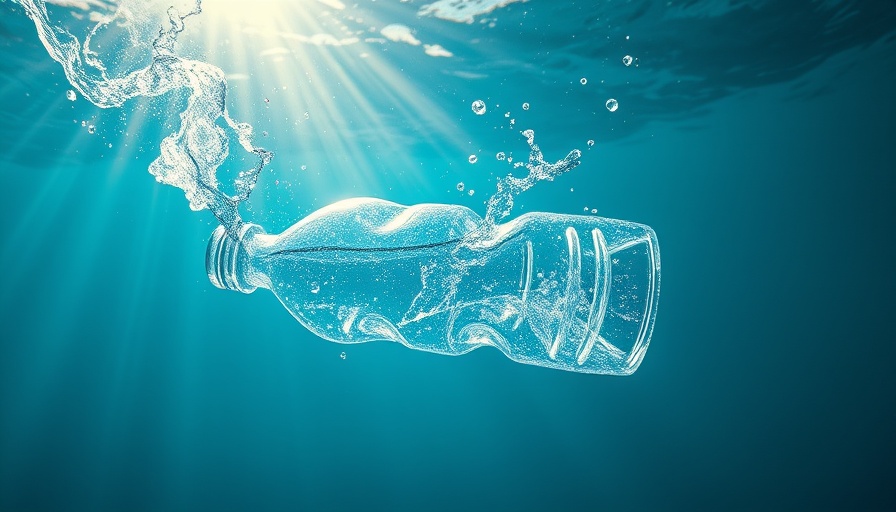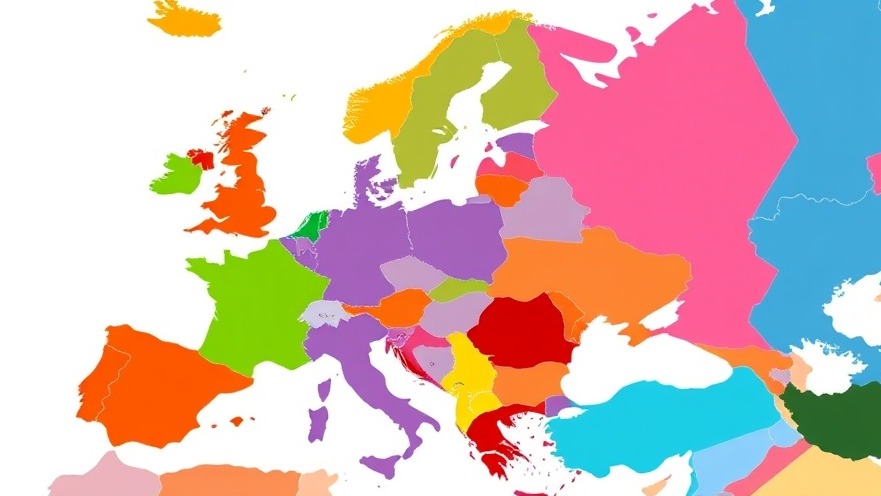
Navigating the Hidden Crisis: The Surprising Truth About Nanoplastics
As millions of tons of tiny plastic particles invade our oceans, a disturbing study reveals the alarming levels of nanoplastics in the North Atlantic. Researchers estimate that there are around 27 million tonnes of these microscopic pollutants floating in the waters, a figure that corresponds to the combined weight of all wild land mammals worldwide, as reported by the New York Times. This shocking discovery stresses the urgent need for awareness and action among those in the hospitality industry, particularly boutique hotels and eco-lodges, who are keen on sustainable practices.
Microplastics: The Silent Invaders
Nanoplastics, defined as microplastics smaller than a micrometer, travel globally, infiltrating ecosystems from Arctic ice caps to ocean depths. Unlike larger plastic debris, which is easily spotted and occasionally retrieved, these tiny particles remain largely unquantified, posing challenges for researchers striving to understand their environmental impact. One study emphasizes that not only are nanoplastics prevalent, but they also represent a dominant fraction of marine plastic pollution, overshadowing the more visible macro and microplastics.
The Environmental Fallout: Impact on Marine Life
The impact of plastic pollution on marine fauna is profound. Animals can become entangled in larger debris or mistakenly ingest smaller plastic pieces, which can lead to fatal health complications like blocked gastrointestinal tracts. What’s more, the tiniest nanoplastics can infiltrate the bloodstream through intestinal walls, posing risks not just to marine animals but potentially to human health as well when these toxins enter the food chain. This is a critical insight for boutique hotel operators who should educate their guests about the importance of reducing plastic use and protecting marine life.
An Unseen Problem: The Challenge of Measuring Nanoplastics
Quantifying nanoplastics is no easy task due to their small size and tendency to blend with natural particles. Previous studies focused primarily on macroplastics; however, a 2020 research expedition offered significant insights into this hidden threat, mapping the distribution of nanoplastics across various ocean depths. They discovered that nanoplastics can be found even in the deepest parts of the oceans, revealing the extensive reach of plastic pollution.
Why Boutique Hospitality Needs to Care
As champions of sustainability, boutique hospitality professionals have a unique role in combating plastic pollution. By adopting eco-friendly practices such as replacing single-use plastics with sustainable alternatives, they can lead by example and inspire guests to do the same. Initiatives could include offering biodegradable cutlery, implementing refillable water stations, or promoting a 'no-plastic-policy' in guest accommodations. With such measures, hotels can significantly mitigate the impact of their operations on the marine environment and bolster the appeal of eco-conscious staycations.
Future Trends: Innovations to Combat Plastic Pollution
As the awareness of plastic pollution grows, innovative solutions are developing. Synthetic leather alternatives are emerging as sustainable choices for hospitality businesses, while methods like chaos gardening encourage biodiversity that helps pollinators like bees flourish. Such initiatives not only improve business practices but also contribute to broader climate awareness and conservation goals, reinforcing the interconnectedness of environmental health.
Taking Action: What You Can Do
For boutique hospitality professionals, adopting sustainable practices provides an opportunity to embrace a market trend that aligns with consumer values. Begin by evaluating products and sourcing materials that reduce reliance on sterile plastics and other environmentally harmful materials. Promote educational workshops for staff and guests, emphasizing the importance of marine conservation. By positioning your business at the forefront of the sustainability movement, you can enhance your brand’s reputation while contributing to the ocean’s health.
Erroring on the side of sustainability can also create a ripple effect, encouraging others in your community and industry to consider similar commitments to the environment. Evaluate the resources and knowledge available, create authentic networking opportunities among eco-lodges, and make a collective effort toward reducing plastic waste.
 Add Row
Add Row  Add
Add 




Write A Comment